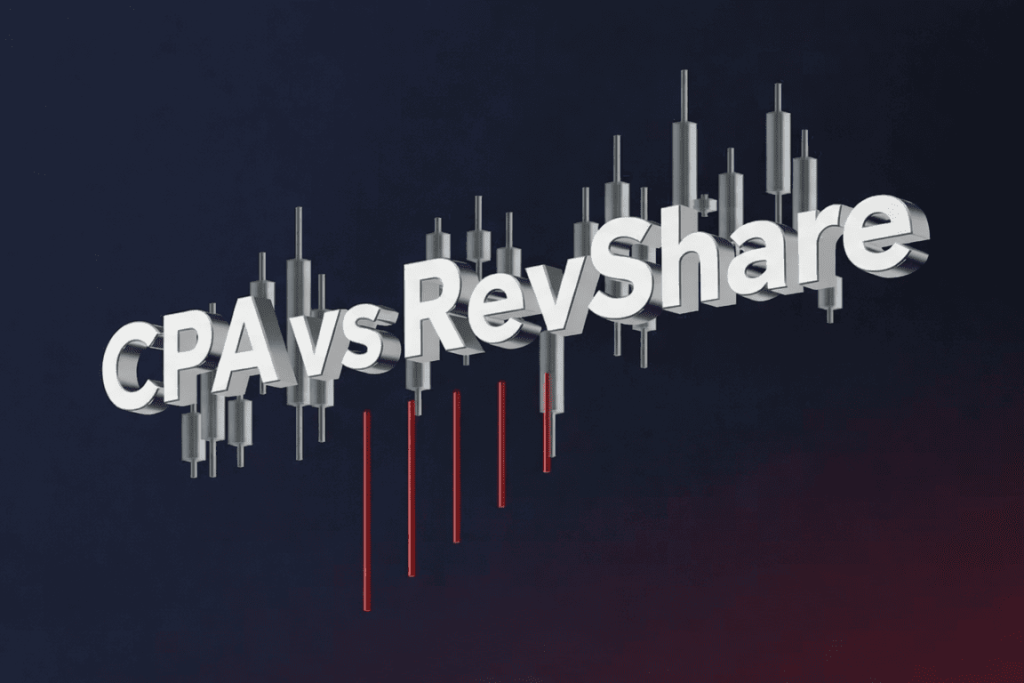
เนื้อหา
The choice of the right KYC provider determines your brokerage's success in 2025. The top players include Jumio, Trulioo, Onfido, Sumsub, and Veriff. They each offer distinctive strengths in identity verification, compliance automation, and global reach. Your final choice, however, should be based on processing speed, location, integration, and regulatory compliance requirements.
Why KYC Compliance Is Critical for Brokers
Brokerages are facing increasing regulatory stress everywhere owing to the significant increase in KYC expectations by financial regulators. Therefore, robust identity confirmation systems are now unavoidable. Highlighted below are some of the reasons why KYC compliance is critical for brokers.
Regulatory Impact:
- Due diligence is required for MiFID II compliance
- Customer identification is strengthened under AMLD5
- Market regulations vary significantly by location
Business Implications:
- Non-compliance attracts up to €10 million or 10% of annual revenue in penalties
- Regulatory fraud damages your reputation irretrievably
- Manual processes cause bottlenecks that adversely affect customer experience
Today's KYC solutions address these challenges adequately. They provide automated verification, live risk screening, and extensive audit trails. Therefore, the right provider makes onboarding more convenient while boasting bulletproof compliance.
Key Features to Look Out For in KYC Providers
Document Verification Capability
Your provider must support different document types across different countries. In addition, look for solutions that verify:
- Government-issued IDs in more than 200 countries
- Utility bills and bank statements
- Professional licenses and certifications
- Biometric matching with facial recognition
Important Requirements
- Above 98% OCR accuracy
- Multilanguage support
- Real-time fraud detection
- Authenticity of documents verified
Global Coverage and Compliance
Every market differs. European brokers, for instance, need GDPR compliance. Concurrently, US operations demand FinCEN compliance.
Key Areas of Critical Coverage:
- AML screening against worldwide databases
- PEP (Politically Exposed Persons) detection
- Sanctions list filtering
- Adverse media filtering
On top of that, your provider must offer pre-configured compliance packages for significant jurisdictions. This reduces the complexity of implementation.
You may also like

Integration and API Quality
Seamless integration with your existing brokerage technology solutions is the definition of operational efficiency. Therefore, look for:
- RESTful API document quality
- SDK support for major platforms
- Webhook-based real-time updates
- White-label customization level
Top 10 KYC Providers for Brokers
Jumio
Jumio is a market-leading identity verification provider through its AI-based platform. The company processes over 500 million transactions annually.
Strengths:
- Industry-leader accuracy rates (99.5%+)
- Support for 3,500+ document types
- Real-time fraud detection algorithms
- Holistic mobile SDK
Ideal For: High-volume, high-capacity brokerages with minimal false positives.
Pricing Model: Enterprise with volume discounts.
Trulioo
Trulioo is recognized for its global presence. The platform provides identity verification coverage in over 195 countries. Additionally, it features 400+ data sources.
Key Features:
- Extensive international database coverage
- Business verification feature
- Enhanced due diligence for high-risk clients
- Risk scores that can be customized
Best Suited For: Brokers that want to expand into emerging markets or require extensive global coverage.
Distinction Weakness: Larger latency in some emerging regions due to data source dependencies.
Onfido
Onfido combines document checking with facial biometrics. The platform offers end-to-end identity verification, and it is particularly common in the European markets.
Key Features:
- Advanced facial biometric matching
- Motion-based liveness detection
- GDPR-compliant data processing
- Studio-grade document capture
Target Market: European brokers who appreciate biometric security and compliance.
Point to Consider: Premium pricing may not be suitable for small businesses.
Sumsub
Sumsub provides an end-to-end compliance platform. The solution ties in identity verification with continuous monitoring features and has excellent customization options.
Key Benefits:
- Compliance in one solution
- Advanced case management system
- White-label customization
- Competitive pricing model
Ideal For: Mid-size brokers who seek strong compliance automation.
Area for Growth: AI capabilities and global database coverage improvement.
Veriff
Veriff focuses on user experience at the cost of security. The platform is fast to verify with high accuracy levels and has excellent mobile optimization.
Key Features:
- Enhanced user experience design
- Rapid verification times (<10 seconds)
- High conversion rates
- Exceptional mobile performance
Best Use Case: Brokers who care about customer experience and mobile onboarding.
Trade-off: Limited customization compared to enterprise-level solutions.
SEON
SEON is an anti-fraud and risk assessment platform that utilizes advanced machine learning algorithms and offers full device fingerprinting.
Key Features:
- Advanced fraud detection algorithms
- Device fingerprinting technology
- Real-time risk scores
- Full data analysis
Best Application: Brokers with high fraud volumes or trading in high-risk markets.
Note: Primarily fraud prevention and not complete KYC.
Shufti Pro Limited
Shufti Pro is a fast and reliable platform that supports rapid verification with extensive global support. Additionally, it has flexible pricing models.
Main Advantages:
- Sub-10-second verification times
- 150+ countries supported
- Multi-language customer support
- Flexible verification workflows
Target Market: Tech-savvy startups and mid-market brokers who require speed.
Limitation: Restrictive reporting capabilities compared to enterprise solutions.
ComplyAdvantage
ComplyAdvantage is an AML compliance and risk management specialist. The platform provides comprehensive sanctions screening with advanced risk intelligence.
Key Features:
- Live sanctions database updates
- Comprehensive adverse media monitoring
- Risk assessment through artificial intelligence
- Automated regulatory reporting
Ideal Clients: Brokers with operations in highly regulated jurisdictions with strict AML compliance requirements.
Consideration: Limited document verification capabilities compared to specialist vendors.
iDenfy
iDenfy offers developer-focused solutions with strong customization options. It has competitive plans for growing brokerages and provides fast integration processes.
Full Features:
- Strong API documentation
- White-label solutions
- Flexible pricing plans
- Fast integration process
Best Fit: Tech-intensive startups appreciating customization and affordability.
Limitation: Limited global reach in comparison to established players.
Ondato Ltd
Ondato provides full-stack identity verification solutions and supports multiple verification methods with high efficiency. Moreover, it has strong European market coverage.
Key Strengths:
- Multi-method verification approach
- Strong European compliance
- Competitive pricing structure
- Good customer support
Ideal For: European brokers that desire comprehensive verification at affordable prices.
Downside: Minimal visibility beyond European markets.
You may also like

Cost Analysis and ROI Considerations
Pricing Models
KYC providers tend to utilize these pricing models:
Per-Verification Pricing:
- Range: $0.50 - $5.00 per check
- Best for: Low-volume operations
- Considerations: Costs escalate in direct proportion to expansion
Subscription Models:
- Range: $500 - $50,000+ per month
- Best for: High volume predictability
- Advantages: Enhanced cost management and additional features
Enterprise Licensing:
- Custom pricing based on requirements
- Includes: Dedicated and personalized support
- Ideal for: Large-scale operations
Hidden Costs to Consider
Apart from base rates, factor in the following additional costs:
- Integration development time (typically 2-8 weeks)
- Maintenance and update forever
- Additional verification types (address, phone, etc.)
- Premium SLA contracts and support
- Compliance consulting services
ROI Calculation Framework
Forecast your KYC investment return by considering:
Cost Savings:
- Reduced manual review time
- Reduced compliance staff requirements
- Fewer regulatory fines at risk
- Faster customer onboarding
Revenue Impact:
- Improved conversion rates with seamless onboarding
- Entering new markets with adequate compliance
- Higher customer confidence and loyalty
Typically, most brokers achieve 3-6 month payback periods with judiciously deployed KYC solutions.
Best Practices for Implementation in 2025
Technical Integration Strategy
Phase 1: Planning (2-4 weeks)
- Establish verification requirements per customer segment
- Identify current workflow and integration points
- Establish success metrics and SLAs
Phase 2: Development (4-8 weeks)
- Deploy core API integration
- Build error handling and fallbacks
- Build monitoring and alerting
Phase 3: Testing (2-3 weeks)
- Perform extensive testing across document types
- Test for compliance with target jurisdictions
- Conduct peak capacity load testing
Phase 4: Deployment (1-2 weeks)
- Slow rollout with monitoring
- Training staff in new procedures
- Performance data-driven ongoing optimization
Common Challenges with Implementation
Technical Problems:
- Insufficient error handling to annoy customers
- Substandard mobile experience decreases conversion rates
- Inadequate test coverage across document types and quality levels
Operational Problems:
- Insufficient training of staff in the new verification procedures
- Not well-defined edge case escalation processes
- Inadequate monitoring of key performance indicators
Compliance Risks:
- Misaligned configuration with regulatory requirements
- Insufficient audit trail documentation
- Insufficient data retention and privacy controls
Updates in the Regulatory Landscape for 2025
Major Regulatory Developments
European Union:
- Enhanced MiFID II regulatory requirements for the protection of retail investors
- Amended AMLD6 provisions affecting beneficial ownership identification
- Continued enforcement of GDPR with higher penalty levels
United States:
- FinCEN rulemaking updates for beneficial ownership
- Heightened scrutiny of cryptocurrency activity
- State money transmission license requirements are increasing
Asia-Pacific:
- Singapore's updated AML/CFT requirements
- Australia's enhanced customer identification procedures
- Hong Kong's virtual asset service provider regulations
Compliance Strategy Adaptation
Your KYC provider must adapt to these emerging needs through:
- Periodic rule updates to accommodate new laws
- Jurisdictional configurable verification processes
- Enhanced reporting capabilities for regulatory inquiries
- Compliance change proactive alerting
Get ahead of the game with providers that have dedicated compliance teams. Additionally, ensure they offer proactive regulatory monitoring.
How to Future-Proof Your KYC Strategy
Emerging Technologies
Artificial Intelligence Integration:
- Advanced document forensic application of machine learning
- Behavioral biometrics for ongoing authentication
- Predictive risk scoring through verification patterns
Blockchain and Digital Identity:
- Self-sovereign identity solutions
- Immutable audit trails
- Cross-platform identity verification
Enhanced Biometrics:
- Voice biometrics for phone authentication
- Advanced liveness detection techniques
- Multi-modal biometric fusion
Scalability Considerations
Plan for growth by evaluating:
Technical Scalability:
- API rate limits and performance under load
- Geographic distribution of processing nodes
- Redundancy and disaster recovery capabilities
Business Scalability:
- Flexible pricing plans that scale with your business
- Support for new markets and document types
- White-labeling options for branding consistency
Regulatory Scalability:
- Rapid addition of new jurisdictions
- Configurable compliance rules and workflows
- Automated regulatory reporting capabilities
How to Choose Your KYC Provider
Evaluation Framework
Create a weighted scoring system based on:
Technical Fit (30%):
- Integration complexity and timeline
- API quality and documentation
- Mobile and web SDK feature set
Compliance Coverage (25%):
- Support for your markets of interest
- Frequency of regulatory updates
- Completeness of audit trails
Performance Metrics (20%):
- Accuracy rates for verifications
- Processing speed and availability
- False positive/negative rates
Business Factors (15%):
- Total cost of ownership
- Pricing model flexibility
- Contract terms and commitments
Support Quality (10%):
- Technical support response time
- Implementation support
- Ongoing relationship management
Decision-Making Process
Step 1: Narrow down to 3-4 providers based on your basic requirements
Step 2: Request feature-packed demos for your specific use cases
Step 3: Pilot test with real customer data
Step 4: Look at the price over a 2-3 year time frame
Step 5: Check references from peer-sized brokers in your region
Never select the lowest-cost one because it will not provide the optimal long-term value. Instead, choose vendors that align with your brokerage business strategy and growth plan.
Conclusion
Your choice of KYC providers directly impacts customer experience, regulatory compliance, and operational efficiency. The providers mentioned above are the market leaders today, and they all have distinguishing strengths for different models of brokerage. However, success relies on thorough evaluation, appropriate implementation, and ongoing refinement. Start with precise requirements, test rigorously, and allow flexibility for future regulatory adjustments.
FAQ
Most integrations take 6-12 weeks from idea to full deployment. Simple API integrations would be 4-6 weeks. But sophisticated enterprise implementations may require 16 weeks.
KYC (Know Your Customer) is focused on customer due diligence and verification of identity. Conversely, AML (Anti-Money Laundering) is focused on continuous transaction monitoring and reporting suspicious transactions. The majority of providers offer both services.
Yes, but it requires careful planning. Expect 4-8 weeks for migration. This includes data transfer, system reconfiguration, and staff retraining. Therefore, consider provider lock-in factors when making your initial choice.
Costs usually decrease per verification as volume increases. Most providers have discounts on volume that start at 1,000+ verifications per month. Enterprise agreements typically also have fixed pricing for budgeting.
อัปเดต:
5 สิงหาคม 2568



